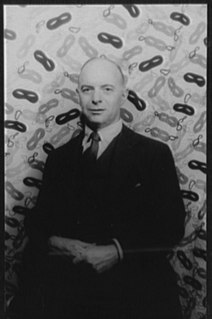A Quote by Henry Fielding
Affectation proceeds from one of these two causes,--vanity or hypocrisy; for as vanity puts us on affecting false characters, in order to purchase applause; so hypocrisy sets us on an endeavor to avoid censure, by concealing our vices under an appearance of their opposite virtues.
Related Quotes
Hypocrisy means deliberately pretending. None of us lives up to his ideals; none of us is all that he would like to be or all that he could be in Christ. But that is not hypocrisy. Falling short of our ideals is not hypocrisy. Pretending we have reached our ideals when we have not - that is hypocrisy.
As witnesses not of our intentions but of our conduct, we can be true or false, and the hypocrite's crime is that he bears false witness against himself. What makes it so plausible to assume that hypocrisy is the vice of vices is that integrity can indeed exist under the cover of all other vices except this one. Only crime and the criminal, it is true, confront us with the perplexity of radical evil; but only the hypocrite is really rotten to the core.
Hypocrisy is bad, but it's not the worst vice in the world. If I declared “murder is wrong” and then killed somebody, I would hope that the top count against me would be homicide, not hypocrisy. Liberal elites ' particularly in Hollywood ' believe that hypocrisy is the gravest sin in the world, which is why they advocate their own lifestyles for the entire world: Sleep with whomever you want, listen to your own instincts, be true to yourself, blah, blah, blah. Our fear of hypocrisy is forcing us to live in a world where gluttons are fine, so long as they champion gluttony.
The fierce words of Jesus addressed to the Pharisees of His day stretch across the bands of time. Today they are directed not only to fallen televangelists but to each of us. We miss Jesus' point entirely when we use His words as weapons against others. They are to be taken personally by each of us. This is the form and shape of Christian Pharisaism in our time. Hypocrisy is not hte prerogative of people in high places. The most impoverished among us is capable of it. Hypocrisy is the natural expression of what is meanest in us all.
The hope for the twentieth century rests on recognition that war and depression are man-made, and needless. They can be avoided in the future by turning from the nineteenth-century characteristics just mentioned (materialism, selfishness, false values, hypocrisy, and secret vices) and going back to other characteristics that our Western Society has always regarded as virtues: generosity, compassion, cooperation, rationality, and foresight, and finding a increased role in human life for love, spirituality, charity, and self discipline.





































